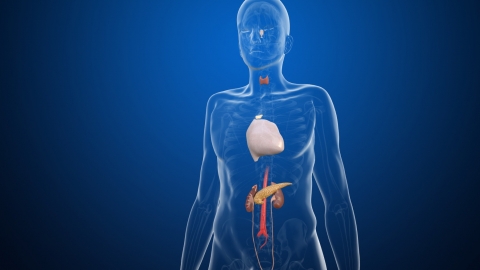Which department should I visit for hormonal imbalance?
In general, patients with endocrine disorders can visit departments such as Endocrinology, Gynecology, Andrology, Thyroid Surgery, or Neurology. If experiencing any discomfort, it is recommended to seek timely treatment at a regular hospital. Detailed explanations are as follows:
1. Department of Endocrinology
The Endocrinology department is the primary clinic for diagnosing and treating endocrine disorders, focusing on diseases related to abnormal hormone secretion in the body. By testing various hormone levels, such as thyroid hormones, insulin, and sex hormones, the causes of endocrine disorders, including hyperthyroidism and hypothyroidism, can be identified, and corresponding hormone-regulating treatment plans can be formulated.
2. Department of Gynecology
Female endocrine disorders are often associated with estrogen and progesterone imbalances, which may lead to menstrual disorders, amenorrhea, polycystic ovary syndrome, and others. Gynecologists can assess the impact of endocrine disorders on the reproductive system through gynecological examinations and hormone level testing, and improve symptoms using medication and other regulatory methods.

3. Department of Andrology
Male endocrine disorders are often related to sex hormones such as testosterone, which may lead to decreased sexual function and abnormal sperm quality. The andrology department specializes in addressing male-specific endocrine issues, conducting hormone testing and reproductive system examinations to develop appropriate treatment strategies to restore endocrine balance.
4. Department of Thyroid Surgery
If endocrine disorders are caused by organic lesions such as thyroid nodules or thyroid tumors, the Thyroid Surgery department can play a role. This department can remove thyroid lesions through surgery and other methods, improving hormone secretion disorders caused by thyroid abnormalities and alleviating symptoms of endocrine disorders.
5. Department of Neurology
Some endocrine disorders are related to central nervous system organs such as the pituitary gland and hypothalamus; functional abnormalities of these organs may affect hormone secretion. Neurology can determine the impact of the central nervous system on the endocrine system through imaging examinations, neurological function assessments, and assist in the diagnosis and treatment of related endocrine disorders.
In addition, patients with endocrine disorders may also need to visit the Traditional Chinese Medicine (TCM) department for regulation. At the same time, maintaining a regular lifestyle and a balanced diet in daily life is beneficial for maintaining endocrine stability.








